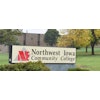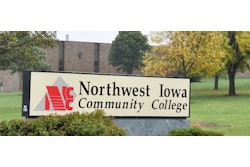Students attending Arizona’s public schools, community colleges and universities may be restricted from operating race-based organizations on campus following a proposal recently approved by a state legislative panel.
According to media reports, the measure would prohibit the operation of student groups such as the Black Business Students Association (BBSA) at Arizona State University, Native Americans United at Northern Arizona University and other organizations “based in whole or in part on race-based criteria.” Critics of the measure say it threatens diversity-related initiatives and attacks necessary minority student-led organizations. However, Rep. John Kavanagh, R-Scottsdale, a supporter of the new measure, says groups that incorporate ethnic or racial identity are “self-defeating” and “self-destructive” for students.
The measure would also prohibit Arizona public schools from including any courses, classes, or school-sponsored activities deemed contradictory to the values of American democracy or Western civilization. According to various reports, the new proposal stems from a conflict involving an ethnic-studies course in the Tucson area, which some critics have referred to as “separatist” and “unpatriotic.”
Dr. Stanlie James, director of African and African American Studies at ASU, would not comment on the proposed measure but says that groups such as the BBSA help “enrich the intellectual environment” at the university. Sharon Keeler, an ASU spokeswoman, adds that the university “has a policy not to comment on proposed legislation.”
Although the primary mission of the BBSA is to identify and develop resources for the academic success of Black students, the organization is open to all ASU students regardless of ethnic background or academic discipline, according to the university’s Web site.
However, Kavanagh adds that the measure would encourage students to celebrate their common American heritage.
“It’s going to ensure that all students are put on a path to assimilation in line with America’s traditional ‘melting pot’ philosophy,” he says. “It’s best for the students because students who are proficient in American values can much better succeed in America.”
According to the Arizona Republic, Rep. Russell Pearce, R-Mesa, who is chairman of the House Appropriations Committee, spearheaded the measure which appeared as an amendment to Senate Bill 1108. Pearce did not return phone calls seeking comment but according to an online state Legislature document, SB 1108 states “the primary purpose of public education is the inculcation of the values of American citizenship.”
Supporters of the bill say Arizona schools should be prohibited from using public tax dollars to “promote political, religious, ideological or cultural values as truth when such values are in conflict with the values of American citizenship and the teachings of Western civilization.”
The measure would also allow for the superintendent of public instruction to withhold state funding if a school violates outlined teaching provisions.
Last week, the House Appropriations Committee approved the new proposal; however, an entire state body must now follow suit, says Laura Devany, a communications advisor for the Arizona State Senate.
“The bill has not been passed by a full body. It was approved by the House Appropriations Committee and it will have to go to the full house,” she notes.
Click here to post and read comments
© Copyright 2005 by DiverseEducation.com















